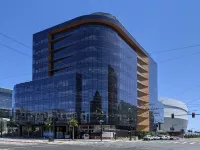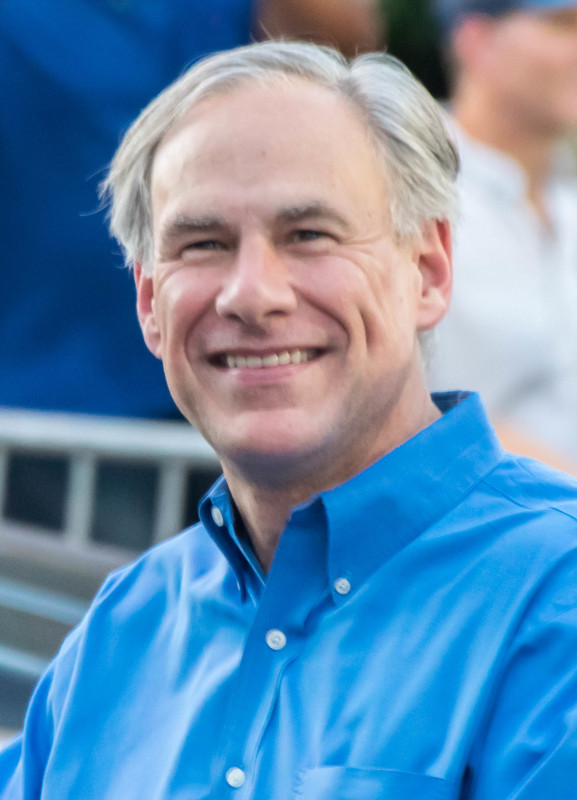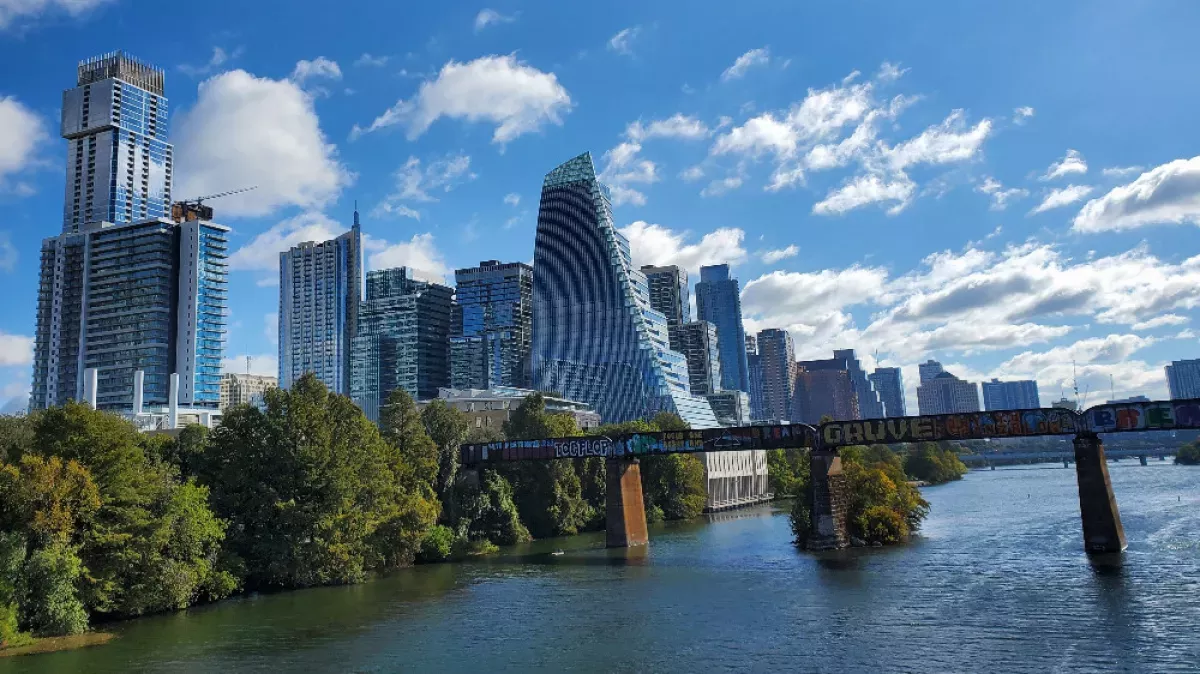Austin, the capital of Texas, is a rapidly growing city with a rich history. As the 11th most populous city in the US, it boasts a vibrant culture and thriving economy. Located about 80 miles from San Antonio, the two cities form a large metropolitan area with a combined population of approximately 5 million. Austin is known for its status as a global city and its position as the southernmost state capital in the contiguous United States.
April 7, 1900: First Granite Dam on Colorado River Destroyed by Flood
On April 7, 1900, a significant flood caused the destruction of the first granite dam constructed on the Colorado River in Austin.
1900: Collapse of the McDonald Dam and Formation of Red Bud Isle
In 1900, the McDonald Dam collapsed, resulting in the formation of Red Bud Isle, a small island on Lady Bird Lake.
1915: Paramount Theatre Opens
The Paramount Theatre opened in downtown Austin in 1915, contributing to the city's theater and film scene.
1920: Austin's Population Rank Declines
Between 1880 and 1920, despite the Texas Oil Boom benefiting other areas, Austin experienced a relative decline in population growth, slipping from the fourth to the tenth largest city in Texas.
May 4, 1922: Deadliest Storm in Austin
The deadliest storm to ever strike within Austin city limits was the twin tornadoes storm of May 4, 1922.
1928: Implementation of the 1928 Austin City Plan
The year 1928 saw Austin embark on a series of civic development and beautification projects as part of the 1928 Austin city plan, leading to the creation of much of the city's existing infrastructure and numerous parks.
1935: Deed Restrictions Enforce Residential Segregation
After 1935, a majority of housing deeds in Austin incorporated restrictions that prohibited African Americans, and in some cases other nonwhite groups, from using land, further entrenching racial segregation in the city.
1940: Construction of New Dam on Colorado River
In 1940, a new hollow concrete dam, designed to replace the destroyed granite dam, was constructed on the Colorado River, forming Lake McDonald (now known as Lake Austin), a structure that has since successfully withstood subsequent floods.
January 31, 1949: Lowest Recorded Temperature
The lowest temperature ever recorded in Austin, Texas was -2°F (-19°C) on January 31, 1949.
1962: Tracor Begins Operations
Marking the beginning of Austin's journey into the technology sector, defense electronics contractor Tracor (now BAE Systems) commenced operations in the city in 1962.
1962: Austin Aqua Festival Begins
The Austin Aqua Festival, or "Aqua Fest," was first held in 1962 as a summer tourism event focused on water-themed activities.
August 1, 1966: University of Texas Tower Shooting
On August 1, 1966, one of the first mass school shootings in the U.S. occurred at the University of Texas at Austin. Charles Whitman, positioned atop the university tower, shot and killed 13 people and wounded 43 others. This tragic event led to the formation of the Austin Police Department's SWAT team.
1967: IBM Establishes Facility in Austin
In 1967, IBM opened a facility in Austin dedicated to producing its Selectric typewriters, further solidifying the city's growing technological presence.
1969: Mount Bonnell Designated a Recorded Texas Historic Landmark
Mount Bonnell, a popular tourist destination in Austin, was officially recognized as a Recorded Texas Historic Landmark in 1969 and assigned Marker number 6473.
1970: U.S. Census Reports Austin's Racial Demographics
The 1970 U.S. Census provided a snapshot of Austin's racial demographics, reporting a population comprised of 14.5% Hispanic, 11.9% Black, and 73.4% non-Hispanic white residents.
1973: Austin Voters Begin Rejecting Single-Member Districts
From 1973 to 1994, Austin voters consistently rejected proposals for single-member districts in favor of the existing at-large system.
1974: Motorola Starts Semiconductor Chip Manufacturing
In 1974, Motorola (now NXP Semiconductors) began manufacturing semiconductor chips in Austin, adding to the city's burgeoning reputation as a technology hub.
1974: Release of "The Texas Chain Saw Massacre"
The horror film "The Texas Chain Saw Massacre" was released in 1974, filmed in Austin.
1977: Establishment of the Islamic Center of Greater Austin
The Islamic Center of Greater Austin, the largest mosque in the city, was established in 1977, marking a significant moment for the Muslim community in Austin.
1983: Mexic-Arte Museum Founded
The Mexic-Arte Museum, a museum for Mexican and Mexican-American art, was founded in 1983.
1984: Austin's At-Large System Upheld in Court Case
In 1984, a lawsuit challenged Austin's at-large system of government; however, the court upheld the system.
1984: Austin Country Club Relocates to Pete Dye-Designed Course
In 1984, the Austin Country Club moved to its current location, featuring a new course designed by renowned golf course architect Pete Dye.
1984: Release of "Songwriter"
The film "Songwriter" was produced in Austin in 1984.
January 1985: Previous Longest Snow Cover
Before the February 2021 winter storm, the longest time Austin, Texas had snow cover of more than an inch was three days, in January 1985.
1985: CapMetro Begins Operations, Setting the Stage for Public Transportation in Austin
CapMetro, Austin's primary public transportation provider, commenced operations in 1985, laying the groundwork for the city's public transportation system.
1987: Federal Government Mandates Abandonment of At-Large Systems in San Antonio and Dallas
Before 1987, the federal government mandated that both San Antonio and Dallas abandon their at-large systems of government.
1991: Yogurt Shop Murders Remain Unsolved
In 1991, a horrific crime shook Austin when four teenage girls were found murdered inside an I Can't Believe It's Yogurt! store. Despite a thorough investigation, the case remains unsolved to this day.
1991: First Austin Turkey Trot
The first Austin Turkey Trot, a 5-mile race held annually on Thanksgiving, was held in 1991.
1992: Austin Parks Foundation Established
The Austin Parks Foundation (APF) was established in 1992 to help develop and improve parks in Austin and surrounding areas.
1992: First Austin Marathon
The first Austin Marathon was held in 1992 and has been run every year since.
1993: Austin's Moonlight Towers Featured in Film
Austin's historic moonlight towers gained cinematic recognition in 1993 when they were featured in the film "Dazed and Confused," further solidifying their status as notable city landmarks.
1993: Bergstrom Air Force Base Closes as Part of Base Realignment
In 1993, as part of the Base Realignment and Closure process, Bergstrom Air Force Base in Austin, Texas, was officially decommissioned. This closure had significant implications for the city's landscape and future development.
1994: Final Rejection of Single-Member Districts before 2012 Referendum
In 1994, Austin voters once again rejected a proposal to implement single-member districts, marking the last such vote before the successful 2012 referendum.
1996: Austin Ice Bats Begin Play
The Austin Ice Bats, a minor-league professional hockey team, began playing at the Travis County Expo Center in 1996.
May 27, 1997: Deadliest Tornado Outbreak in Austin Metro
The deadliest tornado outbreak to ever strike the Austin, Texas metropolitan area was on May 27, 1997.
1997: Previous Peak in Austin Homicides Before 2016
Prior to the increase in homicides observed in 2016, the city of Austin had experienced its highest number of homicides in 1997.
1997: Alamo Drafthouse Cinema Founded
The Alamo Drafthouse Cinema, a movie theater chain, was founded in Austin in 1997.
1998: Austin Aqua Festival Ends
The Austin Aqua Festival came to an end in 1998 after experiencing declining attendance and financial challenges.
1999: Austin–Bergstrom International Airport (ABIA) Becomes Austin's Primary Airport
Austin–Bergstrom International Airport (ABIA), situated on the grounds of the former Bergstrom Air Force Base, assumed the role of Austin's primary airport in 1999. This transition led to the closure of Robert Mueller Municipal Airport, which had previously served as the city's main airport.
1999: Austin Parks and Recreation Receives Excellence in Aquatics Award
The Austin Parks and Recreation Department received the Excellence in Aquatics award in 1999 from the National Recreation and Park Association.
September 5, 2000: Highest Recorded Temperature
The highest temperature ever recorded in Austin, Texas was 112°F (44°C) on September 5, 2000.
2000: Orlu Becomes Sister City
In 2000, Orlu, South East, Nigeria, was designated as a sister city to Austin. This relationship was later downgraded to emeritus status.
2000: Start of a Decade of Rapid Growth and Demographic Shifts in Austin
Between 2000 and 2010, Austin experienced rapid growth, leading to noticeable changes in the city's demographic makeup.
2000: Voters Reject Light Rail Proposal
In 2000, a proposal to introduce light rail services in Austin faced opposition from voters and was ultimately rejected.
2000: United States Census Records for Austin
The 2000 US Census recorded Austin's population at 656,562, with 265,649 households. The data provides a snapshot of the city's demographics at the turn of the millennium.
2000: Bob Bullock Texas State History Museum Opens
The Bob Bullock Texas State History Museum opened in Austin in 2000.
2001: Trail of Lights Canceled
The Trail of Lights, an Austin Christmas tradition, was canceled in 2001 due to the September 11 Attacks.
2002: Trail of Lights Canceled
The Trail of Lights was canceled again in 2002 due to the ongoing impact of the September 11 Attacks.
2002: First Austin City Limits Music Festival Held
The first Austin City Limits Music Festival was held in Zilker Park in 2002 and has since become an annual event.
2003: Austin Passes Resolution Against the USA PATRIOT Act
In 2003, the City of Austin passed a resolution formally opposing the USA PATRIOT Act. The resolution reaffirmed the city's commitment to constitutionally guaranteed rights.
2003: Texas Redistricting
The 2003 Texas redistricting significantly impacted Austin's political landscape. The plan, challenged in court as partisan gerrymandering, resulted in Austin being split across multiple congressional districts, a departure from its century-long inclusion within a single district.
November 2004: Austin Opens New City Hall Designed by Antoine Predock and Cotera Kolar Negrete & Reed Architects
In November 2004, Austin's new city hall, designed by Antoine Predock and Cotera Kolar Negrete & Reed Architects, officially opened. The building was noted for its use of recycled materials and solar panels.
2004: Austin Ranked Top City for Filmmakers
In 2004, Austin was ranked the number one city in MovieMaker Magazine's annual list of top ten cities to live and make movies.
2004: Austin Ranked 12th Best Biotech Hub in the U.S.
In 2004, Austin was recognized by the Milken Institute as the 12th leading center for biotechnology and life sciences in the United States. This ranking highlights the city's growing prominence in these sectors.
2004: Beginning of Austin's Housing Market Upswing
Since 2004, Austin's housing market experienced a consistent upward trend, with median house prices increasing year after year.
2004: Austin Parks and Recreation Receives Gold Medal Awards
The Austin Parks and Recreation Department received the Gold Medal Awards in 2004 from the National Recreation and Park Association.
2005: MTV's "The Real World: Austin"
Austin hosted the filming of the MTV series, "The Real World: Austin" in 2005.
2005: Non-Hispanic White Population Dips Below 50% in Austin
In 2005, a demographic shift occurred in Austin as the non-Hispanic white population fell below 50% for the first time, reflecting the city's increasing diversity.
2005: Mayor Wynn Sets Downtown Population Goal
In 2005, then-Mayor Will Wynn aimed to increase the residential population of downtown Austin to 25,000 by the year 2015.
June 28, 2006: Supreme Court Decision on Texas Redistricting
On June 28, 2006, the Supreme Court largely settled a challenge to the 2003 Texas redistricting plan, upholding it with the exception of one district. This decision impacted Austin's districting, leading to the redrawing of U.S. Rep. Lloyd Doggett's district.
November 2006: First Segment of SH 130 Opens, Providing Traffic Relief for Austin
The initial phase of SH 130, a bypass route intended to ease traffic congestion, was unveiled in November 2006. This segment was strategically positioned east of Austin–Bergstrom International Airport, connecting to SH 71 at Austin's southeast edge.
2006: Blanton Museum of Art Reopens
The Blanton Museum of Art in Austin reopened in 2006.
2006: Texas Longhorns Baseball Team Wins College World Series
The University of Texas at Austin's Longhorns baseball team won the College World Series in 2006.
March 2007: 183A Toll Road Opens, Offering an Alternative to US 183
In March 2007, the 183A Toll Road was opened to the public, providing a tolled alternative to US 183 for travelers passing through the municipalities of Leander and Cedar Park.
2007: Austin Lyric Opera Premieres "Waiting for the Barbarians"
The Austin Lyric Opera premiered Philip Glass's opera "Waiting for the Barbarians" in 2007.
2009: Austin's Commuting Patterns in 2009
In 2009, data revealed that 72.7% of commuters in Austin relied on driving alone as their primary mode of transportation. Other modes of commuting included carpooling at 10.4%, remote work at 6%, public transit at 5%, walking at 2.3%, and cycling at 1%.
2009: Median House Price Reaches $185,906 in Austin
In 2009, the median house price in Austin reached $185,906, reflecting the ongoing growth in the city's housing market.
October 2010: Start of Record Drought
October 2010 marked the beginning of the least rain recorded in a water year in Austin, Texas history.
2010: United States Census Captures Austin's Racial Composition
According to the 2010 United States census, Austin's racial composition was predominantly White (68.3%), followed by Hispanic or Latino (35.1%), African American (8.1%), and Asian (6.3%).
2010: End of a Period of Growth and Decline in African American Population in Austin
By the end of the decade in 2010, Austin had undergone a period of significant growth. The city's African American population saw a decline in its percentage share, despite an increase in actual numbers.
2010: Facebook Expands to Austin, Further Cementing "Silicon Hills" Reputation
In 2010, Facebook announced its expansion to Austin with the acceptance of a grant to establish a downtown office, projecting the creation of up to 200 jobs. This move further solidified Austin's reputation as a burgeoning tech hub, earning it the nickname "Silicon Hills." The influx of technology companies spurred rapid development and transformed the city's landscape.
2010: 2010 Austin Suicide Attack Targets IRS Building
In 2010, a man deliberately crashed his plane into an Austin office building housing an Internal Revenue Service (IRS) office. The attack, which was ruled a suicide attack, killed one IRS employee, injured 13 others, and caused significant damage to the building.
2010: CapMetro Launches 32-Mile Hybrid Rail System, CapMetro Rail
In 2010, the Capital Metropolitan Transportation Authority (CapMetro) inaugurated CapMetro Rail, a 32-mile hybrid rail system. This single-line system connects downtown Austin with various neighborhoods, including East Austin, North Central Austin, Northwest Austin, and the suburb of Leander.
2010: Trail of Lights Canceled
In 2010, the Trail of Lights was canceled due to budget shortfalls.
2010: Fast Growth Period Begins
Starting in 2010, Austin began experiencing a period of rapid growth, establishing itself as one of the fastest-growing large cities in the United States.
2010: Publication of "Weird City"
The book "Weird City" was published in 2010, discussing the origins of the "Keep Austin Weird" motto and its connection to concerns about commercialism and overdevelopment in Austin.
February 4, 2011: Snow Event Causes Car Crashes
A snow event in Austin, Texas on February 4, 2011, resulted in more than 300 car crashes.
August 28, 2011: Highest Recorded Temperature
The highest temperature ever recorded in Austin, Texas was 112°F (44°C), recorded again on August 28, 2011.
September 2011: End of Record Drought
September 2011 marked the end of a record drought in Austin, Texas, with both major reporting stations recording less than a third of normal precipitation.
2011: Chili's at 45th and Lamar Becomes Internet Meme
The Chili's restaurant located at the intersection of 45th and Lamar in Austin became the subject of internet memes starting in 2011.
2011: Trail of Lights Canceled
The Trail of Lights faced another cancellation in 2011 due to continued budget shortfalls.
November 1, 2012: SH 130 Toll Road Completed, Featuring the Highest Speed Limit in the U.S.
On November 1, 2012, the final section of State Highway 130 (SH 130) was inaugurated, marking the completion of this bypass route designed to alleviate traffic congestion in the Austin area. Notably, the 41-mile stretch between Mustang Ridge and Seguin boasts an 85 mph speed limit, the highest posted speed limit in the United States.
November 6, 2012: Austin Voters Approve "10+1" City Council System
On November 6, 2012, Austin voters approved a referendum to change the city's council structure to a "10+1" system. This created ten geographically elected council members and a mayor elected at large.
2012: Trail of Lights Returns
After cancellations in previous years, the Trail of Lights was reinstated for the 2012 holiday season.
2012: Plastic Bag Ban Enacted
In 2012, Austin demonstrated its commitment to environmentalism by becoming one of the few Texas cities to ban plastic bags.
2012: Austin City Council Elections Moved to November, Staggered Term Limits Introduced
In 2012, Austin made significant changes to its City Council elections. The elections were moved from May to November, and staggered term limits were introduced for council members.
2012: Circuit of the Americas Opens
The Circuit of the Americas (COTA), a motor racing facility, opened in Austin in 2012 and hosts the Formula One United States Grand Prix.
2013: Austin - Most Active City on Reddit
In 2013, Austin had the highest number of views per capita on Reddit, making it the most active city on the platform.
January 24, 2014: Ice Storm Causes Vehicular Collisions
On January 24, 2014, Austin, Texas received 0.04 inches (1 mm) of ice, resulting in 278 vehicular collisions.
November 2014: First Election Under Austin's New "10+1" Council System
November 2014 marked the first election held under Austin's new "10+1" city council system, which had been approved by voters two years prior.
2014: Gallup Survey Estimates High LGBTQ+ Identification in Austin
A 2014 Gallup survey estimated that 5.3% of residents in the Austin metropolitan area identified as lesbian, gay, bisexual, or transgender, placing it among the highest rates in the nation.
2014: Study Reveals Austin's Unique Demographic Trend
A 2014 University of Texas study highlighted a unique demographic trend in Austin: it was the only fast-growing US city between 2000 and 2010 to see a net loss in its African American population, despite growth in other ethnic groups.
2014: Light Rail Proposal Fails to Garner Voter Support Again
Despite previous attempts, a subsequent proposal for a light rail system in Austin was once again met with resistance from voters and was defeated in 2014.
2014: Completion of the Ann and Roy Butler Hike and Bike Trail Loop
The Ann and Roy Butler Hike and Bike Trail loop, a 10.1-mile trail around Lady Bird Lake, was completed in 2014 with the addition of the 1-mile Boardwalk project.
2014: Austin Aces Begin Inaugural Season
The Austin Aces, a World TeamTennis team, began their first season in 2014.
2015: Downtown Austin's Residential Population Growth
By 2015, downtown Austin's residential population had experienced significant growth, surging from an estimated 5,000 in 2005 to 12,000.
2015: Austin's Car Ownership Rate in 2015
In 2015, Austin exhibited a lower-than-average percentage of households without a car, at 6.9%, which decreased slightly to 6% in 2016.
2015: Crime Rates in Austin Drop, but Rise in Suburban Areas
In 2015, Austin experienced a drop in both violent and property crime rates, according to FBI statistics. However, suburban areas around the city witnessed an increase in crime during the same period.
2015: Mount Bonnell Listed on the National Register of Historic Places
In 2015, Mount Bonnell, already a recognized Texas landmark, was added to the National Register of Historic Places.
2015: Census Estimates on Education Attainment
The 2015-2019 Census estimates highlighted Austin's high education levels, with 51.7% of residents aged 25 and above holding at least a bachelor's degree.
2015: Austin Aces Leave Austin
The Austin Aces World TeamTennis team left Austin after the 2015 season.
December 2016: Surge in High-Rise Projects in Downtown Austin
As of December 2016, Austin's downtown core was experiencing a surge in vertical development, with 31 high-rise projects either underway, approved, or planned for completion between 2017 and 2020, significantly transforming the city's skyline.
2016: Austin Boasts 1,256 Food Trucks
In 2016, Austin was home to 1,256 food trucks, making it the city with the second-largest number of food trucks per capita in the United States.
2016: Religious Identification Survey in Austin and Nationwide
In 2016, a survey revealed that 23% of Americans identified as Catholic nationwide. During the same period, about 25.2% of Austin's population, identified as Christian, claimed affiliation with the Catholic Church.
2016: Suburban Crime Rates Continue to Rise, Austin Experiences Increase in Homicides
In 2016, crime rates continued to climb in Austin's suburbs, including a spike in homicides in the Del Valle area. The city itself saw an increase in homicides, reaching the highest number since 1997.
2016: SolSmart Gold Designation
Recognizing its solar-friendly policies, Austin received the SolSmart Gold designation in 2016, a first for a city in Texas.
2016: Lone Star Rail Project Derailed After Failed Negotiations
The "Lone Star Rail" project, a proposed regional passenger rail line intended to connect Austin and San Antonio, was terminated in 2016. The project's demise stemmed from an inability to secure an agreement with Union Pacific Railroad, the owner of the existing railway tracks.
2016: Austin's Commuting Trends in 2016
The American Community Survey in 2016 provided insights into Austin's commuting patterns. The survey estimated that 73.5% of commuters in Austin drove alone, while 9.6% opted for carpooling. Public transportation accounted for 3.6% of commutes, walking for 2%, and cycling for 1.5%.
October 28, 2017: Austin Central Library Opens
The Central Library, a key part of the redevelopment of the former Seaholm Power Plant site and the Shoal Creek Walk, opened on October 28, 2017.
2017: Precourt Sports Ventures Proposes Columbus Crew SC Move to Austin
In 2017, Precourt Sports Ventures, then-owners of the Columbus Crew SC, put forward a plan to relocate the franchise to Austin. This sparked negotiations with the city for a new stadium.
2017: High-Rise Projects Scheduled for Completion
Numerous high-rise projects in downtown Austin were slated for completion between 2017 and 2020, reflecting a period of substantial urban development.
March 2018: Austin Serial Bombings Terrorize City for 20 Days
In March 2018, a series of bombings terrorized Austin for 20 days. Five package bombs exploded throughout the city, resulting in the deaths of two individuals and injuries to five others. The suspect, identified as 23-year-old Mark Anthony Conditt, died by suicide in his vehicle when confronted by police, injuring an officer in the process.
March 2018: Fasten Ceases Operations in Austin
In March 2018, ride-sharing company Fasten ceased all operations in Austin.
May 1, 2018: Austin Implements Dockless Mobility Permitting Process
On May 1, 2018, Austin completed the development of its "dockless mobility" permitting process, allowing for the regulated operation of electric scooters and bikes from companies like Lime and Bird. The city had previously banned these services due to their initial operation without a permitting system.
October 29, 2018: Citywide Boil-Water Advisory
The City of Austin issued a citywide boil-water advisory on October 29, 2018 after unprecedented amounts of runoff into the Highland Lakes overwhelmed the city's water processing capabilities.
2018: Plastic Bag Ban Overturned
Austin's plastic bag ban, enacted in 2012, was overturned in 2018 due to a court ruling that found statewide bag bans to be in violation of the Texas Solid Waste Disposal Act.
2018: Austin Climbs to #3 Emerging Life Sciences Cluster
By 2018, Austin's life sciences sector experienced significant growth, leading CBRE Group to rank it as the #3 emerging life sciences cluster. This ranking demonstrates the city's rapid progress in this field.
2018: Lime Introduces Dockless Bikes in Austin
In 2018, Lime began offering dockless bikes in Austin, providing an alternative to the city's existing docked bike-sharing system.
2018: Austin Central Library Named One of Time Magazine's "World's Greatest Places"
In 2018, Time magazine included the Austin Central Library on its list of "World's Greatest Places."
2018: Operational Rights of Columbus Crew SC Sold, Paving Way for Austin FC
In 2018, as part of the agreement to establish Austin FC, the operational rights of the Columbus Crew SC were sold to a new ownership group. This marked a key step toward the creation of Austin's MLS team.
2018: Austin Attracts $1.33 Billion in Venture Capital, Dominating Texas' Investment Landscape
In 2018, companies in the Austin metro area attracted a substantial $1.33 billion in venture capital investment. This investment accounted for over 60% of the total venture capital invested in Texas, signifying Austin's dominance in attracting investment within the state.
2018: Filming of "Fear the Walking Dead" Season 4
Season 4 of the AMC show "Fear the Walking Dead" was filmed in various locations around Austin in 2018.
2018: The Independent Becomes Tallest Residential Building West of Chicago
Upon its topping out in 2018, The Independent, a 58-story condominium tower standing at 690 feet (210 meters) tall, earned the distinction of being the tallest all-residential building west of Chicago in the United States.
January 15, 2019: Austin FC Announced as MLS Expansion Team
On January 15, 2019, Austin FC was officially announced as the 27th franchise in Major League Soccer (MLS). This followed the acquisition of Columbus Crew SC's operational rights and an agreement with the City of Austin for a new stadium.
January 2019: HOPE Outdoor Gallery Closes on Baylor Street
The HOPE Outdoor Gallery, a public street art project on Baylor Street in Austin, closed to the public in early January 2019.
March 2019: HOPE Outdoor Gallery Remains Standing
Despite its closure, the HOPE Outdoor Gallery on Baylor Street in Austin remained intact behind a fence in mid-March 2019.
June 2019: Austin City Council Lifts Camping Ban Following Court Ruling
In June 2019, the Austin City Council decided to lift a 25-year-old ban on camping, sitting, or lying down in public spaces, unless it caused an obstruction. This decision followed a federal court ruling in the Martin v. Boise case regarding homelessness and sleeping in public. Additionally, the resolution included the approval of a new housing-focused shelter in South Austin.
September 2019: Austin City Council Allocates Funding to Address Homelessness
In September 2019, the Austin City Council demonstrated its commitment to tackling homelessness by approving $62.7 million for various initiatives. The funds were directed towards programs focused on preventing housing displacement, mitigating crises, providing affordable housing, and allocating $500,000 for crisis services and encampment cleanups.
October 2019: Texas Governor Challenges Austin's Camping Ban Repeal
In early October 2019, Texas Governor Greg Abbott expressed his opposition to Austin's decision to lift the camping ban. He sent a letter to Mayor Steve Adler, threatening to deploy state resources to counter the city's action.
October 17, 2019: Austin City Council Revises Camping Ordinance
On October 17, 2019, the Austin City Council made revisions to the camping ordinance in response to concerns and legal challenges. The revised ordinance aimed to address the issue of public camping while considering the rights of individuals experiencing homelessness.
November 2019: Texas Opens Temporary Homeless Encampment in Austin
In November 2019, the State of Texas took action to address homelessness in Austin by establishing a temporary encampment. The encampment was set up on a former vehicle storage yard owned by the Texas Department of Transportation.
2019: Median Value of Owner-Occupied Homes Surpasses National Average
By 2019, the median value of an owner-occupied home in Austin soared to $318,400, exceeding the national average of $240,500, indicating a robust housing market.
2019: Austin Named Top Beer Destination
Drinks publication VinePair named Austin as the "top beer destination in the world" in 2019, recognizing its thriving craft beer scene with over 50 microbreweries in the metro area.
2019: Austin Ranked Among the Safest Large Cities in the U.S.
In 2019, Austin was recognized by the FBI as one of the safest large cities in the United States. The city ranked 11th on a list of 22 cities with populations exceeding 400,000.
2019: Car2Go Pulls Out of Austin
In 2019, carsharing service Car2Go pulled out of Austin, although it maintained its North American headquarters in the city.
2019: Austin Grapples with Severe Traffic Congestion
In mid-2019, TomTom, a navigation and mapping company, ranked Austin as having the most severe traffic congestion in Texas. Nationally, Austin ranked 19th, and globally, it secured the 179th position for traffic congestion.
2019: Census Estimates on Education Attainment
The 2015-2019 Census estimates highlighted Austin's high education levels, with 19.4% of residents aged 25 and above holding a graduate or professional degree.
2020: Russian Hackers Target Austin in Cyberattack
In 2020, the City of Austin was targeted in a cyberattack attributed to the Russian hacking group known as Berserk Bear. The attack was suspected to be linked to a larger U.S. federal government data breach that had occurred earlier in the year.
2020: Austin BCycle Renamed to CapMetro Bike
In 2020, the bike-sharing service Austin BCycle was renamed to CapMetro Bike.
2020: Project Connect: Voters Approve $10 Billion Transit Expansion Plan
In a significant shift, Austin voters overwhelmingly endorsed Project Connect, a comprehensive $10 billion transit expansion plan, in 2020. This ambitious plan encompasses various projects, including the introduction of two new light rail lines, an additional bus rapid transit line (with potential future conversion to light rail), a second commuter rail line, multiple new MetroRapid lines, expanded MetroExpress routes, and enhancements to infrastructure, technology, and service offerings.
2020: High-Rise Projects Scheduled for Completion
Numerous high-rise projects in downtown Austin were slated for completion between 2017 and 2020, reflecting a period of substantial urban development.
2020: United States Census Records Austin's Population Growth
The 2020 US Census revealed a significant increase in Austin's population, reaching 961,855, highlighting the city's substantial growth over two decades.
2020: United States Census Shows Shifting Demographics in Austin
The 2020 United States census highlighted the changing demographics of Austin, with the White population at 72.6%, Hispanic or Latino at 33.9%, African American at 7.8%, and Asian at 7.6%.
2020: Austin Population Census
The 2020 census reported Austin's population at 961,855, reflecting the city's ongoing growth.
April 18, 2021: Triple Homicide at Arboretum Oaks Apartments
On April 18, 2021, a tragic triple homicide occurred at the Arboretum Oaks Apartments in Austin. A former Travis County Sheriff's Office detective shot and killed his ex-wife, his adopted daughter, and his daughter's boyfriend before being apprehended after a 20-hour manhunt. The suspect had a prior history of legal trouble, including charges of child sexual assault.
May 2021: Austin Reinstates Camping Ban
In May 2021, a ballot proposition to reinstate a ban on camping in certain public areas of Austin, Texas, was approved by 57% of voters. The ban prohibits camping, sitting, or lying down on sidewalks, and sleeping outdoors in specified areas, primarily targeting the downtown area and the University of Texas campus. It also includes restrictions on solicitation in these zones.
May 2021: Reinstatement of Public Camping Ban in Austin
In May 2021, voters in Austin decided to reinstate a ban on public camping, including in downtown green spaces, trails, and greenbelts like Barton Creek.
June 12, 2021: Mass Shooting on Sixth Street Leaves One Dead, Multiple Injured
In the early hours of June 12, 2021, a mass shooting on Austin's bustling Sixth Street resulted in the death of one person and injuries to 14 others. The deceased victim was believed to be an innocent bystander caught in the crossfire. The suspect, 19-year-old De'ondre "Dre" White, was apprehended and charged with the crime.
2021: Austin FC Joins MLS
A significant milestone for Austin's sporting landscape, 2021 saw the city welcome Austin FC, its first and only major professional sports team, into Major League Soccer.
2021: Birdie's Restaurant Opens
Birdie's, a counter-service restaurant and wine bar, opened in Austin in 2021.
2021: Austin FC Kicks Off Inaugural Season
In 2021, Austin FC began its inaugural season in MLS, marking the city's official entry into the league.
2022: Proposition D Aligns Austin Mayoral Term with Presidential Elections
In 2022, Proposition D was passed, aligning the term of the Austin Mayor with presidential election years. This affected Kirk Watson's term, shortening it to two years unlike his predecessor Steve Adler.
2022: Austin's GDP Reaches $222 Billion, Solidifying its Status as a Tech Hub
In 2022, the Greater Austin metropolitan statistical area achieved a gross domestic product (GDP) of $222 billion. This achievement highlights Austin's standing as a prominent technology center. The city's robust tech industry is largely attributed to the steady influx of graduates from the engineering and computer science departments of the University of Texas at Austin, who contribute significantly to the local workforce.
January 6, 2023: Kirk Watson Begins Second Term as Mayor of Austin
On January 6, 2023, Kirk Watson assumed the office of Mayor of Austin for a second non-consecutive term.
January 30, 2023: Winter Freeze and Power Outages
Starting on January 30, 2023, a winter freeze in Austin, Texas left 170,000 Austin Energy customers without power or heat for several days, leading to public frustration over the slow pace of repairs and lack of communication from city officials.
February 16, 2023: Austin City Manager Fired
Austin City Manager Spencer Cronk was fired by the city council on February 16, 2023 due to his handling of the city's response to the January 2023 winter storm.
July 1, 2023: Austin-Round Rock Metropolitan Area Population Estimate
As of July 1, 2023, the Austin-Round Rock metropolitan statistical area had an estimated population of 2,473,275.
November 2023: Austin Abolishes Parking Minimum Requirement
As of November 2, 2023, Austin became the biggest US city to abolish the requirement for parking minimums to encourage alternative transportation methods, lower housing costs, and increase housing density.
December 2023: Austin City Council Loosens Zoning Rules
In response to rising home prices, December 2023 saw the Austin City Council decide to ease the city's zoning regulations. These changes permitted the by-right development of triplexes on individual lots and relaxed restrictions on tiny homes.
2023: Birdie's Named Restaurant of the Year
In 2023, Birdie's was recognized as Food & Wine's Restaurant of the Year.
2024: Austin Population Estimate
In 2024, Austin had an estimated population of 984,567, marking an increase from previous years.
2024: Man Stabbed in West Campus Hate Crime
In a disturbing incident in 2024, a 23-year-old Palestinian-American man, Zacharia Doar, was attacked and stabbed in the chest in Austin's West Campus area. The attack took place as he was returning from a rally in support of Palestinian human rights. The assailant, identified as 36-year-old Bert James Baker, was immediately apprehended and charged with aggravated assault with a deadly weapon.
2025: Austin to Host BLAST.TV Austin Major Esports Tournament
Austin is scheduled to host the BLAST.TV Austin Major, a major Counter-Strike esports tournament, in 2025.
Mentioned in this timeline
Facebook is a social media and networking service created in...

Uber Technologies Inc is a multinational transportation company headquartered in...
Nigeria is a West African nation the most populous in...

Greg Abbott is the th and current governor of Texas...
Lyft Inc is a US-based transportation company providing a range...

Christmas is an annual festival celebrated on December th commemorating...
Trending
Justice Haynes is an American college football running back currently playing for the Michigan Wolverines He began his college career...

8 months ago Ashton Kutcher and Mila Kunis's bathing habits spark debate; Taylor met the couple.

Ana Violeta Navarro-C rdenas is a Nicaraguan-American political strategist and commentator known for her appearances on various television programs and...

1 month ago Nina Dobrev enjoys Mexican getaway with friends after Shaun White split, finding beach vibes.

2 months ago Kendall Jenner Celebrates Her 30th Birthday with Nude Beach Photos and Bikini Looks

Martin Luther King Jr was a pivotal leader in the American civil rights movement from until his assassination in As...
Popular

XXXTentacion born Jahseh Dwayne Ricardo Onfroy was a controversial yet...

Stranger Things created by the Duffer Brothers is a popular...

Kelsey Grammer is an accomplished American actor producer and singer...

Carson Beck is an American college football quarterback currently playing...

Marco Rubio is an American politician attorney and diplomat He...

Candace Owens is an American conservative political commentator and author...
